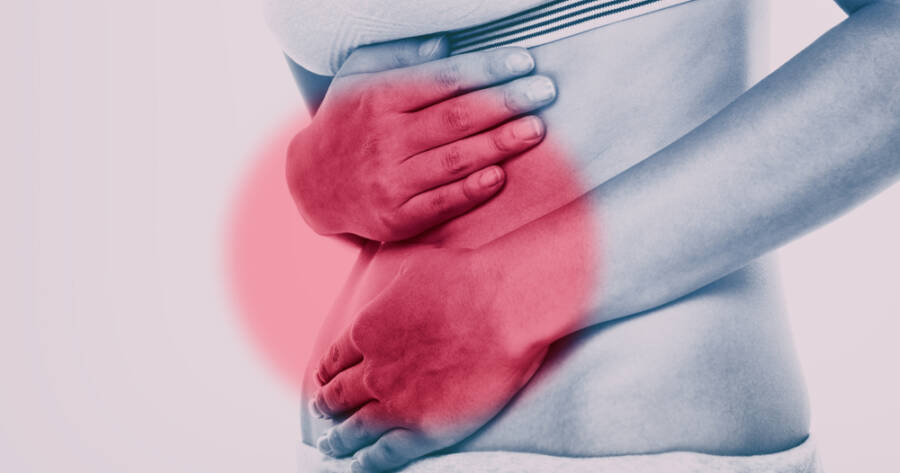Crohn’s disease, a type of inflammatory bowel disease (IBD), can significantly impact an individual’s quality of life due to its chronic and often painful symptoms. However, with proper management, many people with Crohn’s disease might find ways to reduce the frequency and severity of flare-ups.
What is Crohn’s Disease?
Crohn’s disease is a chronic inflammatory bowel disease (IBD) that causes inflammation of the digestive tract, leading to a wide range of symptoms. It can affect any part of the gastrointestinal tract, from the mouth to the anus, but it most commonly impacts the small intestine and the beginning of the colon. The exact cause of Crohn’s disease is not fully understood, but it is believed to be related to a combination of genetic factors, an abnormal immune system response, and environmental triggers. Instead of targeting harmful invaders, the immune system mistakenly attacks the digestive tract, causing inflammation, ulcers, and damage to the tissue. Common symptoms of Crohn’s include persistent diarrhea, abdominal pain, weight loss, fatigue, and sometimes fever. These symptoms can vary in severity and may flare up periodically, followed by periods of remission where symptoms improve or disappear. Since Crohn’s disease is a lifelong condition with no known cure, treatment focuses on managing symptoms, reducing inflammation, and maintaining quality of life.
Medications
Medications are often the first line of treatment for Crohn’s disease. The type of medication you may need depends on the severity of your symptoms and the part of the digestive tract affected. Anti-inflammatory drugs, such as aminosalicylates, could be used for mild cases, while corticosteroids might be prescribed for moderate to severe symptoms. It’s possible that corticosteroids could help reduce inflammation quickly, but they may not be suitable for long-term use due to potential side effects, including weight gain, mood swings, and increased risk of infection.
For more severe or resistant cases, immunosuppressants might be an option. Drugs like azathioprine or methotrexate could help by reducing the immune system’s response, thereby decreasing inflammation. However, these medications could take several weeks or months to become fully effective, and they may increase your susceptibility to infections.
Biologic therapies are another treatment option for those who don’t respond to conventional medications. Biologics, such as infliximab or adalimumab, target specific proteins in the immune system that cause inflammation. They might provide fast relief and are often used when other medications fail to control the disease, but they may also carry risks, such as serious infections or allergic reactions.
Dietary and Lifestyle Changes
While diet doesn’t directly cause Crohn’s disease, certain foods could trigger or worsen symptoms. You might need to work with a nutritionist to identify foods that could help reduce symptoms. For example, some people find that limiting dairy, avoiding fatty or spicy foods, and eating smaller meals might alleviate digestive discomfort. A low-fiber diet could be recommended during flare-ups to minimize bowel irritation, while during remission, a balanced diet rich in nutrients might help maintain overall health.
Stress management techniques, such as mindfulness, yoga, or deep breathing exercises, could also play a role in controlling symptoms, as stress has been identified as a potential trigger for Crohn’s disease flare-ups.
Surgery
In cases where medications and lifestyle changes don’t provide adequate relief, surgery might become necessary. Surgery could involve removing damaged sections of the intestine or draining abscesses. While surgery may not cure Crohn’s disease, it could offer significant symptom relief and improve quality of life for many patients. It’s possible that surgery might lead to remission, but Crohn’s often recurs, meaning further treatments may be necessary down the road.
Alternative Therapies
Some individuals may seek alternative or complementary therapies, such as acupuncture, probiotics, or herbal supplements, to manage symptoms. While these therapies might provide relief for some, it’s essential to consult with a healthcare provider before beginning any alternative treatments. These options might not be effective for everyone, and their safety and efficacy can vary.
Finding the Right Treatment Plan
Crohn’s disease is a complex condition that requires a tailored approach to treatment. Medications, lifestyle changes, and even surgery could help manage symptoms, but it might take time to find the right combination of therapies that work for you. A close relationship with your healthcare provider is essential to monitor the disease and adjust treatments as necessary. With a comprehensive treatment plan, it’s possible to reduce the impact of Crohn’s disease on your life and achieve long-term remission.
